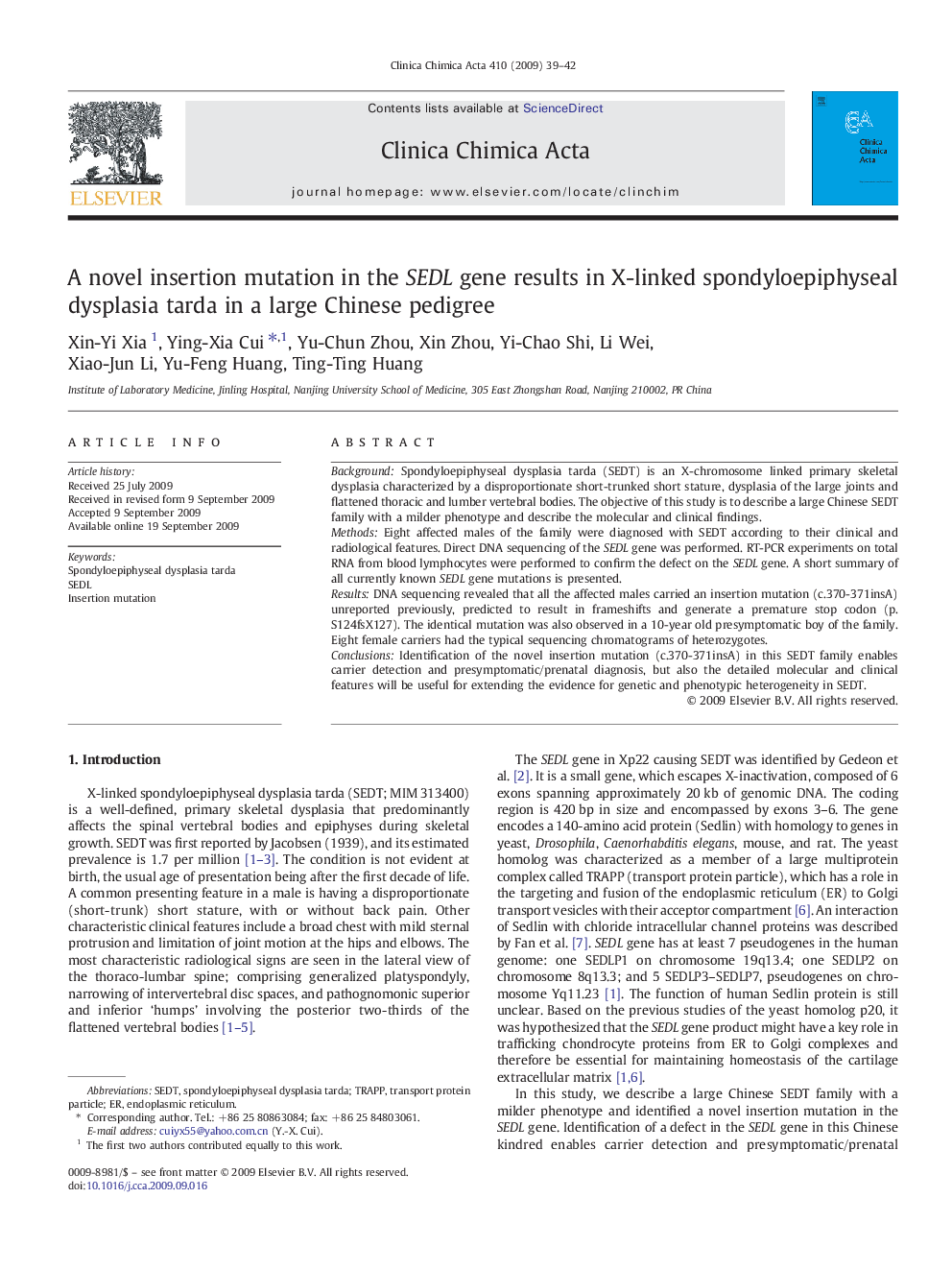| Article ID | Journal | Published Year | Pages | File Type |
|---|---|---|---|---|
| 1966363 | Clinica Chimica Acta | 2009 | 4 Pages |
BackgroundSpondyloepiphyseal dysplasia tarda (SEDT) is an X-chromosome linked primary skeletal dysplasia characterized by a disproportionate short-trunked short stature, dysplasia of the large joints and flattened thoracic and lumber vertebral bodies. The objective of this study is to describe a large Chinese SEDT family with a milder phenotype and describe the molecular and clinical findings.MethodsEight affected males of the family were diagnosed with SEDT according to their clinical and radiological features. Direct DNA sequencing of the SEDL gene was performed. RT-PCR experiments on total RNA from blood lymphocytes were performed to confirm the defect on the SEDL gene. A short summary of all currently known SEDL gene mutations is presented.ResultsDNA sequencing revealed that all the affected males carried an insertion mutation (c.370-371insA) unreported previously, predicted to result in frameshifts and generate a premature stop codon (p.S124fsX127). The identical mutation was also observed in a 10-year old presymptomatic boy of the family. Eight female carriers had the typical sequencing chromatograms of heterozygotes.ConclusionsIdentification of the novel insertion mutation (c.370-371insA) in this SEDT family enables carrier detection and presymptomatic/prenatal diagnosis, but also the detailed molecular and clinical features will be useful for extending the evidence for genetic and phenotypic heterogeneity in SEDT.
